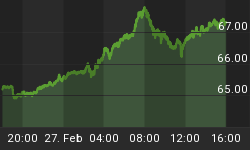WARNING! - the Emergency Economic Stabilization Act of 2008 may significantly DESTABILIZE the US and global economy for the balance of 2008 and 2009
I am not trying to be alarmist, but we are at a precipice here that we do not have to fall off of - although it appears that some are insistent that we take the plunge.
Summary of the Proposed Act
The draft legislation tilted "Emergency Economic Stabilization Act of 2008" authorizes the Treasury Secretary $250 bn immediately to purchase troubled assets and to provide insurance to companies for distressed assets. This limit could be raised to $350 bn through presidential certification and further to $700 bn through a joint resolution. The draft also provides limits on excessive compensation for executives, provides for judicial review and greater objectivity and transparency to the entire process.
However despite greater transparency, the draft is still silent on many fundamental aspects including mechanisms for asset purchase and sale (which is to be released within 45 days from date of enactment), the pricing of distressed securities, and determination of premium for insurance.
In addition although the draft imposes some limits on executive compensation it does not make attempts to curb current compensation structure. Also the law gives SEC the powers to suspend mark-to-market losses under SFAS 157 which would lead these institutions financial statements to be artificially inflated and will not be reflective of their true market values. This, in addition to the off balance sheet shenanigans of the shadow banking system, is exactly how we got into this mess in the first place.
Purpose
To provide authority to the Federal Government to purchase and insure certain types of troubled assets to providing stability and to prevent disruption in the economy and financial system.
- Protecting the interests of taxpayers by maximizing overall returns and minimizing the impact on the national debt
- Providing stability and preventing disruption to financial markets
- The keep families in their homes
Authority
Limits:
- The authority shall initially be limited to $250 bn outstanding at any one time.
- The limit could be raised to $350 bn outstanding at any one time if at any time the President submits to the Congress a written certification.
- Afterwards, this authority could be raised to $700 bn outstanding at any one time by a joint resolution
- Pursuant to the act the statutory limit on public debt would be raised to $11.315 trillion.
Although the draft has divided the amount into 3 tranches there are no time lines for raising limits.
Timeframe:
- The authority held by the Secretary to purchase or insure the troubled assets shall terminate on December 31, 2009. However if the need persists, it can be extended for a maximum of two years from the date of enactment of the act upon submission of certificate of justification to the Congress.
Judicial review and related matters:
- Any action of the Secretary pursuant to the authority of this Act found to unlawful shall be subject to judicial proceedings.
Funding:
- For the purpose of the authorities granted and for the costs of administering, the Secretary may use the proceeds of the sale of any securities issued under chapter 31 of title 31, United States Code.
The huge cost of bailout at the expense of taxpayers' money would lead to inflationary pressures and further weakening of US dollar. Also if the bailout helps semi-solvent of insolvent investment banks and other financial institutions avoid bankruptcy, it would not solve the liquidity and credit crisis facing the economy. The issue of the dearth of capital in these institutions has not been addressed by this bill. As a matter of fact, if the securities were purchased at a realistic value from the financial institutions, those who have been laggard in making realistic marks would be faced with significant write-down's that would drastically increase their need for capital. In other words, "The economic truth hurts!" It appears as if there was an attempt to address this by relaxing the mark to market rules. This is the economic equivalent of cutting off your head to cure a headache. By easing the mark to market rules in order to ease the accounting requirements that would force the institutions to raise capital, you will create a short term reprieve, but you will now have officially sanctioned significantly economically weaker companies. In addition, this economic weakness will be hidden from all but the most astute of insider investors due to the hide the sausage game of Level 2 to 3 to 2 (at a profit) "I betch' ya can't guess where these hidden profits came from" charade. This will either placate our economy and lull them into a stupor that will be awaken from when the markets drastically crash from institutions that collapsed from their own economic foibles, or engender even further mistrust amongst lending institutions, for they will trust each other even less - due to the even greater lack of transparency than that which brought this crisis upon us. My best guess would be that a combination of both scenarios would most likely occur if this plan goes through as is.















